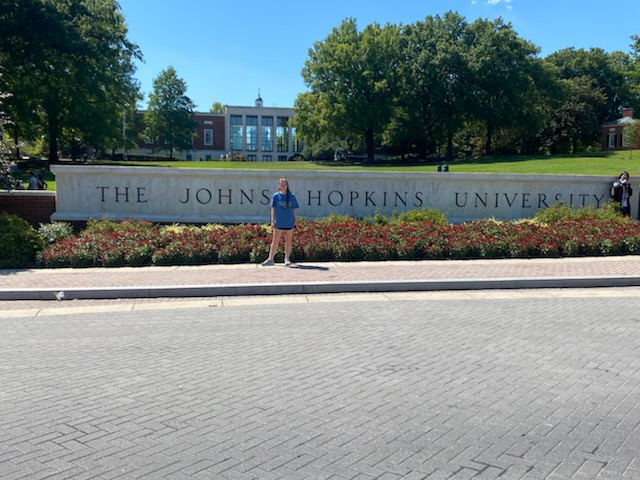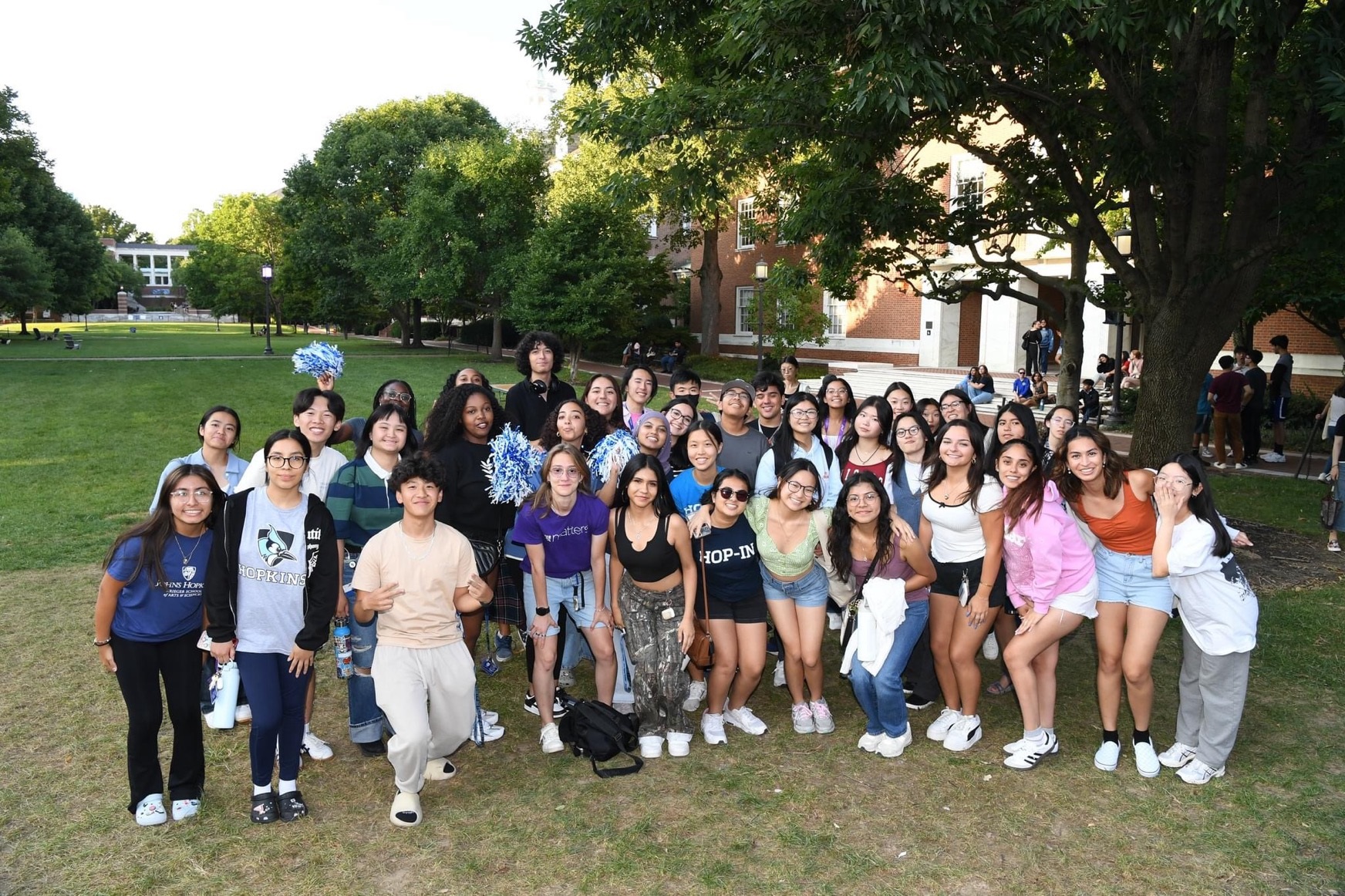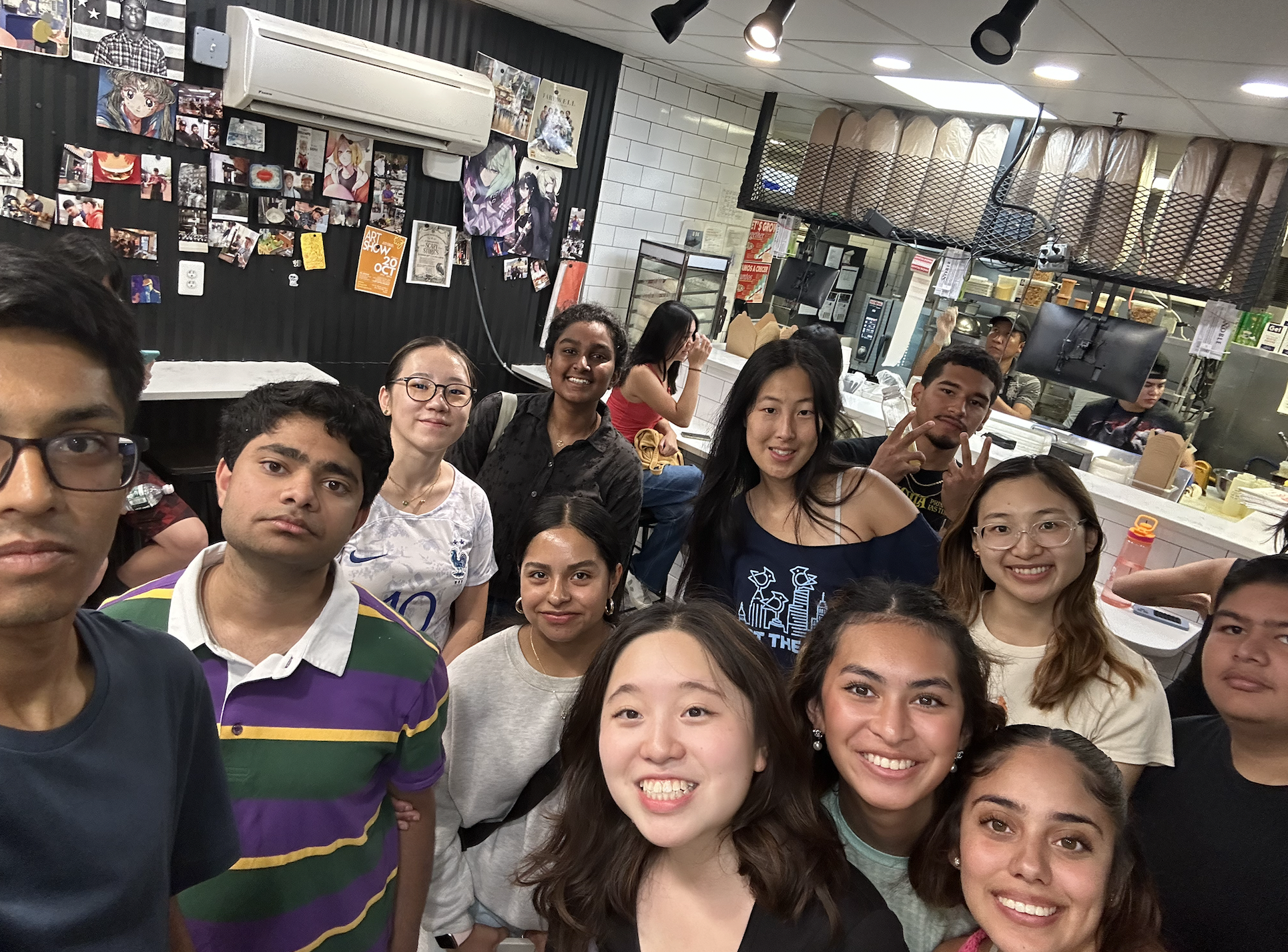
I am a big fan of words. As someone who loves writing, I’ve always paid a lot of attention to words – maybe too much attention. In the college application process, I focused even more heavily on word usage. After many tours and information sessions, I found my brain swirling with repetition. I would fall asleep with “holistic” softly whispering in the back of my mind. I would space out in class with “real-world experience” buzzing in my head. I would sit at dinner and stare at my food, pondering the meaning of “collaborative environment”. I couldn’t help but wonder if these words were all just fluff, just fragments that once had meaning, but lost their validity somewhere along the college process. I started to let those words go in one ear and out the other, not remotely factoring them into my applications. Now that I have experienced a full semester of college, I’ve rethought these seemingly meaningless words.
1.“Collaborative Learning Environment”
At Hopkins, we love this term. A lot. I swear I heard it at least six times between my info session and tour, and it truly did not sink in. The thing is, collaboration really is a key aspect of the Hopkins experience. No, we aren’t constantly holding hands and singing “kumbaya”. But both in and out of the classroom, we learn from each other. We study together in the Brody group study rooms and let our minds spill out onto the whiteboard walls. We work on projects together, tackle problem sets, and edit each other’s essays. And because of our diverse student body, this brings new perspectives to everything we do.
2.“Holistic Review”
I remember hearing this phrase in almost every single information session I attended while touring schools. And I toured a lot of schools. Each time I heard it, I felt myself sarcastically repeating them in my mind and scoffing, ignorantly thinking that there was no way they cared about anything other than my test scores. In reality, Hopkins really does review our applications thoroughly and holistically. So many of my friends here say that they have “no idea how they got in” and I realized that was simply because we all assumed that numbers were the only factor in our application. In reality, admissions officers here are caring people (wow! what a concept!) who take their jobs seriously. If you think they don’t read your essay, think again – and check out these essays that admissions officers loved and learn why they loved them.
3. “Active Both In and Out of the Classroom”
Here’s a little tour guide fun fact: there are over 300 clubs and activities on campus. And with 10 people and a signature, there can easily be 300 more. I remember at every single school I toured, I felt this number increasing dramatically, as if they were bidding against other schools. And frankly, I thought they needed to chill with the figures when it came to clubs. I didn’t care about quantity; I cared about quality. I wanted to know what schools had clubs that did more than just sit around in a circle and eat snacks (although if snack club is a thing, sign me up). I wanted to know how involved the students were, how passionate they were about not only their majors, but also social issues or sports or activities. At Hopkins, clubs and activities are just as much a part of students’ lives as school. Everyone I know is involved in at least one thing outside of the classroom, and it is not something silly like just eating snacks in a circle. I was shocked to find out just how many things on campus are completely student run, like every event run by the HOP, all of Spring Fair, JHUMUNC (which I am a part of!!) and the symposiums, which have featured speakers like Bernie Sanders and Nelson Mandela. Clearly, students put a lot of effort into their endeavors outside of the classroom. And that makes this campus a better place.
4. “Hands-On Experience”
As the nation’s first research university, Hopkins obviously has a lot to offer in terms of hands-on experiences. I never really paid attention to this aspect of colleges during my search. I never really saw myself as someone who would do research – it seemed so dry. But when my intersession instructor mentioned that he could use research assistants in his lab, I jumped at the experience. I loved the information I was learning in my class, and the idea of diving deeper into it was so exciting to me. So at Hopkins, “hands on experience” for me means doing psychological research in attention and perception through assisting in performing EEGs. For others, that means working in a biology lab and dissecting mice brains (shoutout to these people; I am far too queasy to ever do that). For some, hands-on experience can simply mean a class like the B’more intersession courses, that have field trips galore and give real-life meaning to the course content. I will definitely not be the first person to tell you this, but hands-on experience is easily the best form of learning out there. You cannot really know what it is like to work in a field until you are physically doing it. And truly, hands-on experience is what college should be all about.
When buzzwords are thrown at you left and right during the college process, it is easy to lose track about what you care about most. But don’t just let these words go in one ear and out the other. Instead, examine them with a critical eye. See if they really are just fancy buzzwords, or if the school genuinely cares about these aspects of their institution. And with that information in the back of your mind, you will have the power to find the best fit for you.





